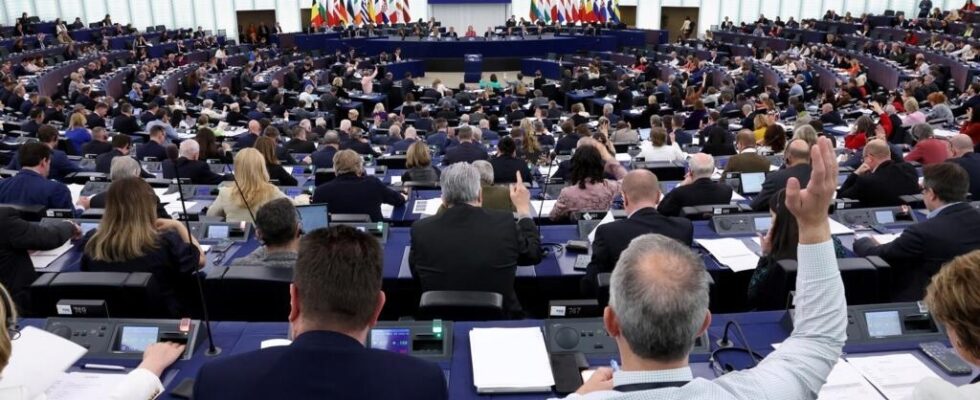The question of the remuneration of MEPs by private interests came up in the campaign for European women. What do MEPs really get? And what do the rules of Parliament say? Although many European elected representatives receive income other than the compensation provided for by their mandate, this additional income covers very diverse realities.
4 mins
“ These deputies who fill their pockets in addition to their elected compensation! “. Below this shocking formula, the leaflet posted on the social network Europeans. Valérie Hayer, who heads the Renaissance list of Emmanuel Macron’s camp, François-Xavier Bellamy (the Republicans) and Raphaël Glucksmann (Place publique – Socialist Party) are all three accused of receiving between 12,000 and 60,000 euros, in addition of the approximately 7,800 euros in monthly allowances conferred by the status of MEP. “ Who do they report to? To their employers or their voters? I propose to ban these additional remunerations for all European elected officials! », protests Manon Aubry in comment.
🔴1/4 of European deputies are paid by lobbies, companies or governments in addition to their elected compensation!
Who do they report to? To their employers or to their voters?
I propose to ban these additional remunerations for all European elected officials! pic.twitter.com/FN39hOJVTI
— Manon Aubry (@ManonAubryFr) May 3, 2024
The attack did not fail to provoke a reaction from those concerned. Valérie Hayer immediately announced that she was going to file a complaint against Manon Aubry after accusations that she considers “scandalous” and “inadmissible”. “ The only remuneration that I received at the very beginning of the mandate was that of a local elected official. », she clarified immediately on TF1. As for Raphaël Glucksmann, he made it known that this was income from the copyrights of the books he wrote and that in no case was he paid by “ lobbies, businesses or governments » as the leaflet of its competitor on the left suggests.
One in four MEPs declare income other than their parliamentary allowances
Beyond the controversy, the rebellious MEP and former spokesperson for Oxfam France relies on a report from Transparency International, an NGO specializing in the fight against corruption. Published on May 6, 2024, this report did not need an in-depth investigation to assert that one in four MEPs benefits from ancillary income since it simply compiles data available for free access on the Parliament website. European. We can thus see with a simple click, for example, that Manon Aubry has not declared no other income since entering the European Parliament.
THE code of Conduct of the European Parliament was updated last year in the aftermath of “Qatargate”. In its new version, this code provides for the obligation for MEPs to complete an asset declaration at the start and end of their mandate, prohibits any lobbying activity during the period of exercise of their mandate but does not prohibit receiving income alongside parliamentary allowances.
However, MPs must declare this income publicly if it brings them more than 5,000 euros per year. The only exception: they are only required to declare the shares or participations they own in companies when this could have ” a potential influence on public policies » or that this participation gives them “ a significant influence »these two vague concepts being left to the sole discretion of those concerned as Transparency International points out.
Very diverse realities
This limit set, the NGO estimates that MEPs whose five-year mandate expires at the beginning of June have still accumulated more than 8.7 million euros in ancillary income per year. This figure is somewhat distorted by Lithuanian MP Viktor Uspaskich which alone declared 3 million euros in annual income excluding compensation.
Transparency International highlights the risk of conflict of interest since it is possible to influence the European legislative process concerning the regulation of artificial intelligence, while sitting on the advisory board on data protection of the German giant Deutsche Telekom or being a serving board member of an online payment technology company who helped legislate the sector
This reality covers very diverse realities: thus 85% of MEPs declared less than 10,000 euros of ancillary income per year and only 5% declared plus 50,000 euros. We are therefore far from a generality. Transparency International also cross-referenced the data and found that elected officials from the right, center and far right are more likely than elected officials from the left and environmentalists to exercise a paid activity alongside their mandate. Logically, they also declare greater ancillary income.
The MPs concerned also voted overwhelmingly against an amendment last year which planned to prohibit any paid activity for a company or group referenced in the European Union’s transparency register.
